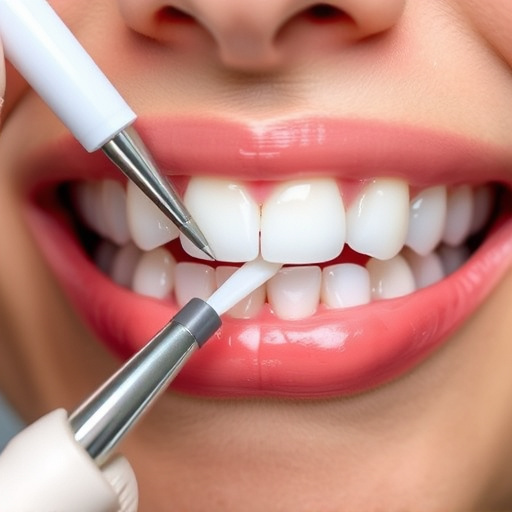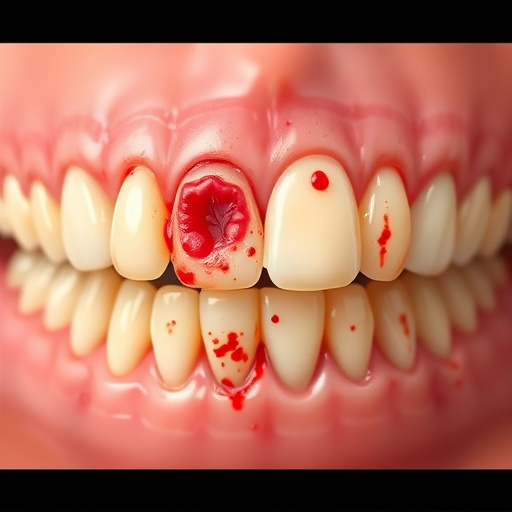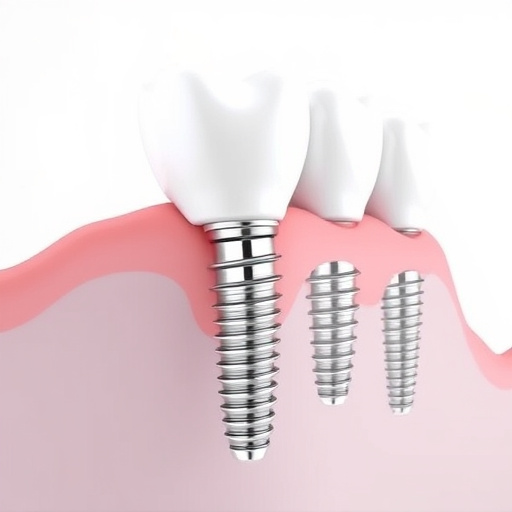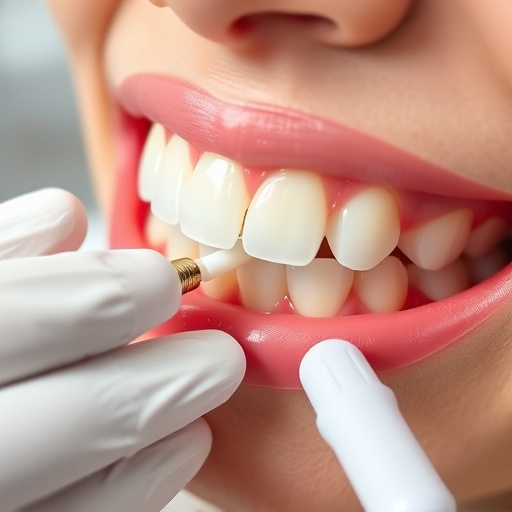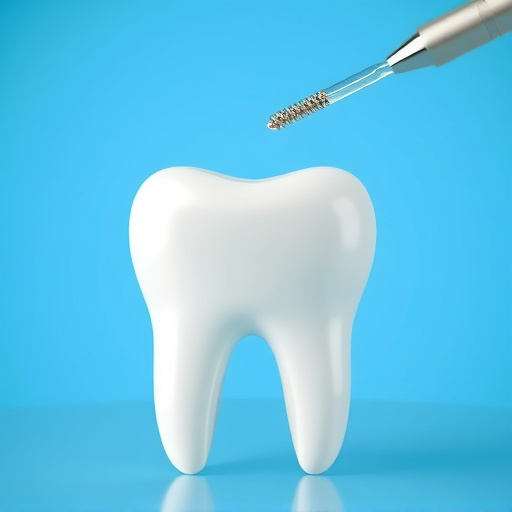Single tooth implants offer a groundbreaking solution for missing teeth, acting as independent anchors without affecting nearby teeth. Comprising a titanium post fused to the jawbone and topped with a custom ceramic or zirconia crown, these implants provide both aesthetic and functional restoration. Ideal for long-term solutions, they preserve oral structure, enable confident eating, and require regular dental care for optimal health. Compared to traditional bridges, single tooth implants avoid damage to healthy teeth, enhance cosmetic dentistry, and offer easy maintenance with minimal discomfort during recovery.
“Single tooth implants offer a groundbreaking solution for tooth replacement, eliminating the need for support from neighboring teeth. This advanced dental procedure not only restores functionality but also maintains the natural aesthetics of your smile. In this comprehensive guide, we explore the advantages of using no nearby teeth for support in single tooth implants. From understanding the process to long-term health benefits, discover why this innovative approach is transforming dental care.”
- Understanding Single Tooth Implants: A Comprehensive Overview
- The Advantages of Using No Nearby Teeth for Support
- Procedure, Recovery, and Long-Term Health of Single Tooth Implants
Understanding Single Tooth Implants: A Comprehensive Overview

Single tooth implants represent a revolutionary advancement in dental restoration, offering a permanent solution for missing teeth without compromising the health or stability of surrounding teeth. Unlike traditional bridges that rely on adjacent teeth for support, these implants serve as independent anchors, providing a robust and natural-feeling replacement. This method is particularly beneficial for patients seeking a long-term fix who want to preserve the integrity of their smile and oral structure.
Comprised of a titanium post surgically placed in the jawbone, a single tooth implant is designed to mimic the function and aesthetics of a natural tooth. Following placement, the implant osseointegrates with the bone, creating a strong foundation. A custom-made crown, often made from high-quality materials like ceramic or zirconia, is then attached to the implant, resulting in a lifelike tooth that blends seamlessly with the rest of the smile. This process not only enhances aesthetics but also restores functionality, allowing patients to enjoy all their favorite foods once again with confidence. As part of comprehensive dental care, regular dental cleanings and check-ups are crucial for maintaining optimal oral health around these advanced restorations.
The Advantages of Using No Nearby Teeth for Support

One of the significant advantages of single tooth implants is the absence of support from neighboring teeth. Unlike traditional bridges that require grinding down healthy teeth for anchors, implants offer a more conservative approach. This means less damage to your natural dentition and a preservation of your oral structure. The lack of support from nearby teeth also makes implants more comfortable, as they don’t involve the intricate work of connecting multiple teeth, reducing potential issues like bite misalignment or discomfort during chewing.
Furthermore, single tooth implants can enhance your cosmetic dentistry. With their natural-looking design and integration into the jawbone, they restore both form and function without disrupting the surrounding teeth. Regular oral exams will show that these implants are easy to maintain, requiring no special treatment for the supporting structures. This simplicity makes them a practical choice, especially when considering the long-term benefits and the potential for dental bonding techniques to create seamless restorations.
Procedure, Recovery, and Long-Term Health of Single Tooth Implants

The procedure for single tooth implants involves a minimally invasive surgical process where a tiny titanium post is placed into the jawbone to serve as an artificial root. This replaces the missing root structure, providing a strong foundation for a custom-made dental crown. The recovery period allows the implant to integrate with the bone, ensuring stability and longevity. During this time, patients typically experience minimal discomfort and are advised to maintain proper oral hygiene through regular dental cleanings and careful brushing.
In terms of long-term health, single tooth implants offer several advantages. They preserve the surrounding teeth, unlike traditional bridges that require support from adjacent teeth. This can reduce the risk of decay or damage to nearby structures. With proper care, these implants can last for many years, providing a permanent solution for tooth repair. Unlike cosmetic fillings, which may need periodic replacement, implants offer a more durable and aesthetically pleasing option for restoring single teeth.
Single tooth implants offer a groundbreaking solution for dental restoration, eliminating the need for support from adjacent teeth. This advanced procedure not only provides a strong and stable replacement for missing teeth but also preserves the health and integrity of surrounding dental structures. With their seamless integration and long-lasting durability, single tooth implants represent an excellent choice for those seeking both functionality and aesthetics in dental care.








